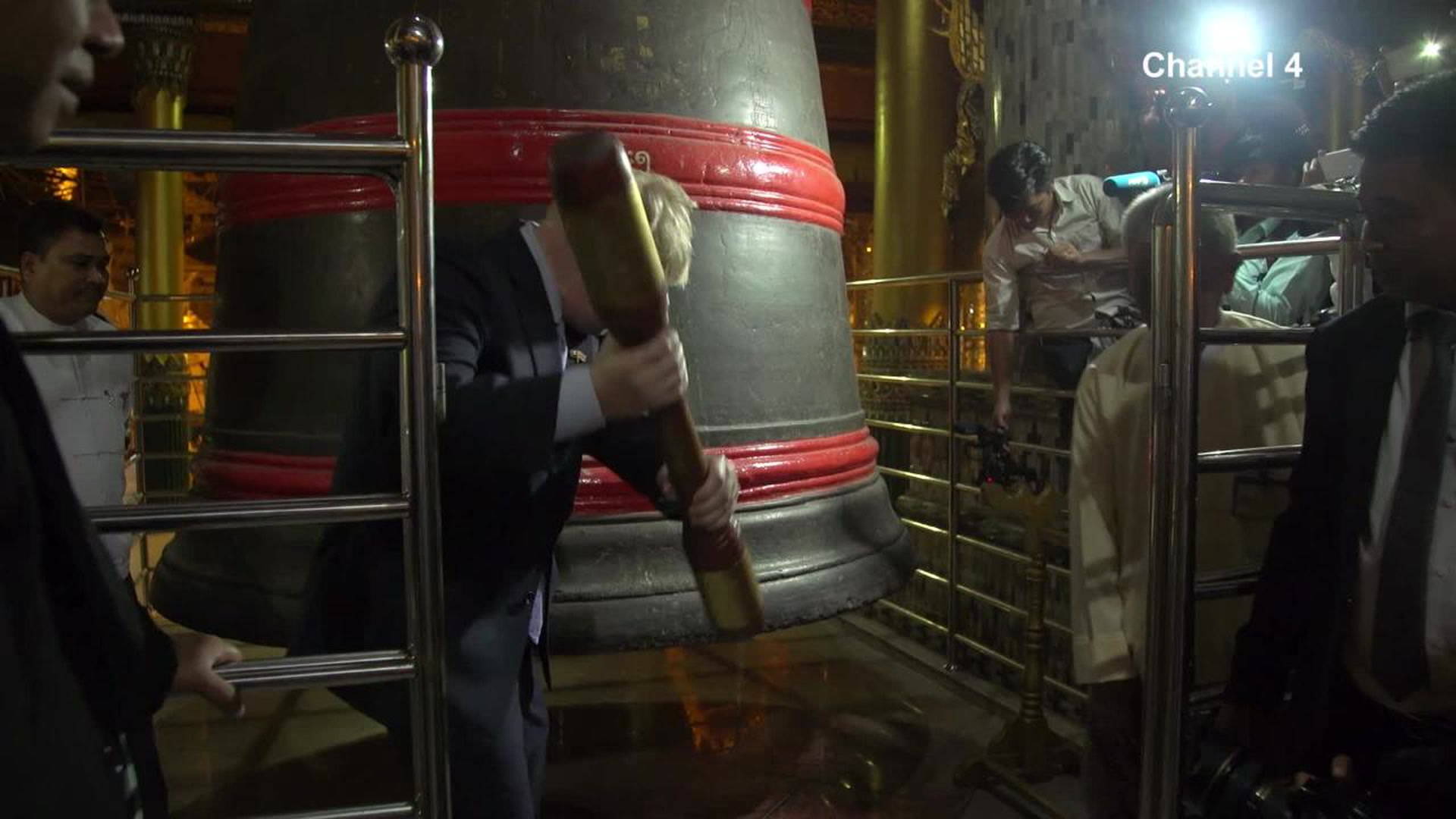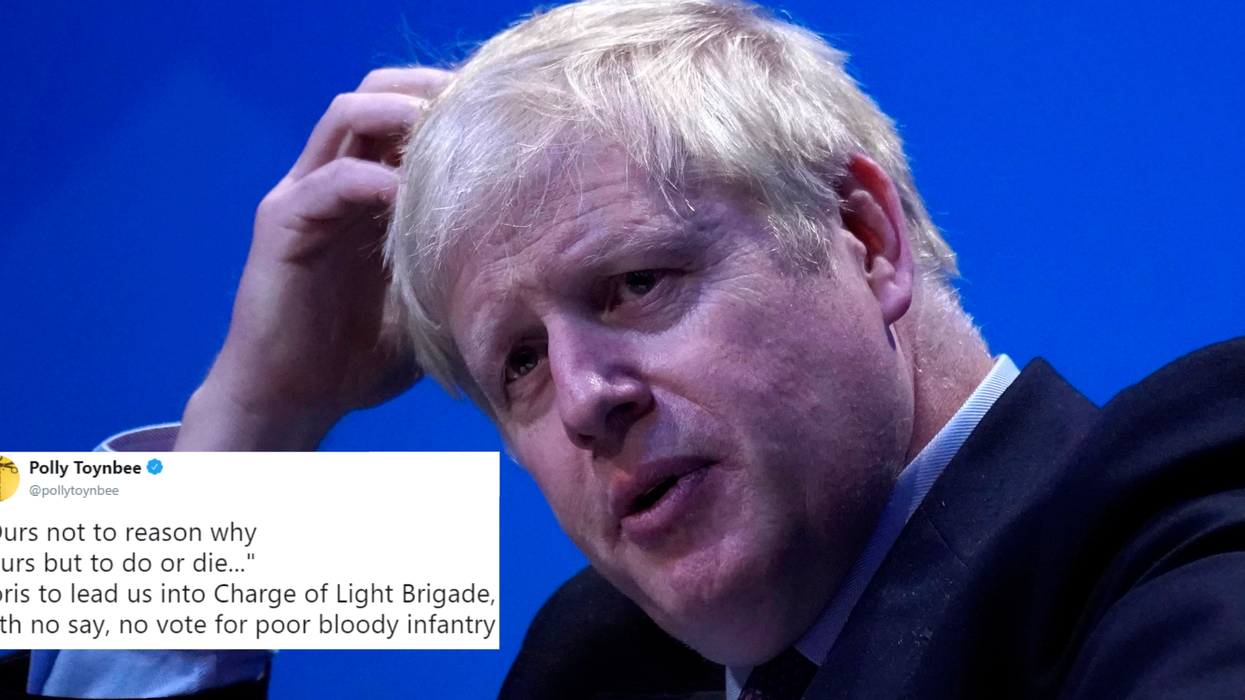Andy Gregory
Jun 26, 2019
Boris Johnson yesterday stepped up his Brexit rhetoric with the phrase “do or die”.
While, to be fair, he was affirming a statement made by TalkRadio’s political editor Ross Kempsell, the prime ministerial hopeful might want to be a little more careful when agreeing to words so laden with historical symbolism.
Mr Johnson pledged that Britain would leave the EU on 31 October "do or die, come what may".
The phrase is famously linked to Alfred Tennyson’s poem, The Charge of the Light Brigade, written about "perhaps the most futile gesture in a century of British history" - although it is, in fact, a misquote. The poet wrote:
'Forward, the Light Brigade!'
Was there a man dismayed?
Not though the soldier knew
Someone had blundered.
Theirs not to make reply,
Theirs not to reason why,
Theirs but to do and die.
Into the valley of Death
Rode the six hundred.
It refers to a doomed full-frontal cavalry charge against the Russian army during the Crimean War in 1854.
The attack was reportedly based on a miscommunication and saw 156 soldiers wounded and 122 injured or captured by Russians who, as legend has it, thought the British soldiers must be drunk.
It seems unlikely Mr Johnson is unfamiliar with the origins of this phrase, given his penchant for quoting Rudyard Kipling, who penned a follow-up to Lord Tennyson’s poem some 20 years later.
Although, regurgitating these poets’ lines in an appropriate context has never quite been the former foreign secretary’s strong point.

People had a lot to say about the remarks.
Prime ministerial rival Jeremy Hunt told a press briefing in Essex:
The trouble with 'do or die' is you could end up with a general election, Corbyn in Downing Street and no Brexit at all, and I want to offer a more positive future than that.
Former rival Rory Stewart called it "very strange" to use the phrase and said he was troubled by Mr Johnson's paraphrasing of the Tennyson poem:
I'm a little bit troubled by that. I hope he's not setting it up in those kinds of terms. I don't quite understand why he would agree with that kind of language.
What I would hope he meant and I'd hope he'd clarify and say is that he's going to try to deliver a Brexit that works for Britain... that this isn't some sort of charge towards the guns.
On Twitter, others outside the Tory party, also took issue with Mr Johnson's wording.
More: BBC host gives brutally honest response to Boris Johnson's model bus painting hobby
Top 100
The Conversation (0)














